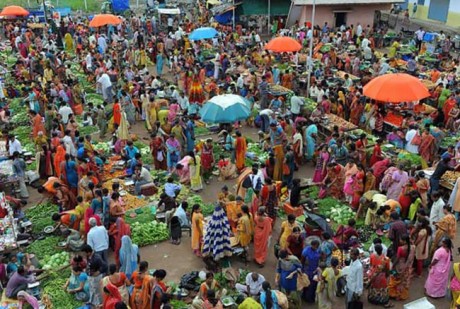Have you ever witnessed a riot? Have you ever seen a media coverage on riots or read about them in
books? There is something very strange about these videos and pictures which make me very curious.
Whenever a mob kills a person, they utter the name of their religious gods. I haven’t read a single
religious scripture in my life which associates the rape of a pregnant woman to the appeasement of a god.
Through this article, I want to suggest a few new perspectives of looking at people, events and ideas
around us. G.R.R. Martin mentions in his novel “There’s a beast within every man that stirs when you
put a sword in his hand.” Taking that as true, what incites a man to take a sword in his hand? Is it a
personal loss? Is it a motivation to guard your religion? Or is it just the fear of personal safety? Otherwise,
how much do we really care? I mean, many of the people I’ve met haven’t been to a single house of
worship, haven’t observed a single fast, and are still a certified Hindu or a certified Muslim or a Sikh.
I do not write this article to advocate the universal fact about being human. I have full reverence to the
impulse of an angry mob. But, can’t we think of our target audience? What kind of a revenge is obtained
by gang raping a seven year old girl?
Often, religion comes across as an adopted child of Indian politics. The defeat of the ruling central
government is often credited as the aftermath of the 2002 riots in Gujarat. Everything that the central
government did in its tenure from conducting Pokhran nuclear tests to winning the Kargil war, from more
economic reforms to the ‘Sarva Shiksha Abhiyan’, from improving the national roads and highways to the
introduction of POTA, everything was forgotten.
Now, let us consider a hypothetical situation. Would there be no riots in India if every single individual in
this country belonged to the same religion? In 1947, this was the notion perceived by many that Hindus
and Muslims could no longer live together in the same country. India was partitioned with the Muslim
dominated areas being named as Pakistan. Problem solved. Really? Pakistan witnessed massive killings,
guerilla warfare and riots even in recent times. The entire Bhutto clan was washed away. The conditions
of women and the minorities are even worse.
India is based on the idea of ‘Sarva Dharma Samabhavana’. It doesn’t mean people of one religion have
allowed the people of other religions to come and settle here. It does not symbolizes the superiority of
one religion over the other. Some superior minds have repeatedly advocated the notion that basically
every religion more or less, gives the same message. All of them are set on a foundation of truth with a
backdrop of love. Also, we need to accept that there are some shortcomings in every religion, like Sati
Pratha, Hudood Ordinance etc. Otherwise, we would not have evolved over time by improving in these
areas.
Today, can we give the name of at least one single person or group or organization which can safeguard
us from these riots, one political party that can assure that such riots and killings won’t happen in India
again at any cost? The harsh fact is that only we can do it and that too by a collective and organized
effort. We need to accept our difference and our similarities too. A South Indian Muslim can have more
things in common with a South Indian Hindu than a North Indian Muslim. His food habits, his way of
dressing, his language would have more in common to people living around him.
India was and still remains a strange country. Every religion, festival, culture, food, clothing, language
defines India. Thousands of minds around the world continue to remain fascinated by our unity in
diversity. To conclude, I would like to give an analogy. I may not like some traits of my life partner or her
family, but as long as I respect her, we can make a lovely family.







Beautifully Written